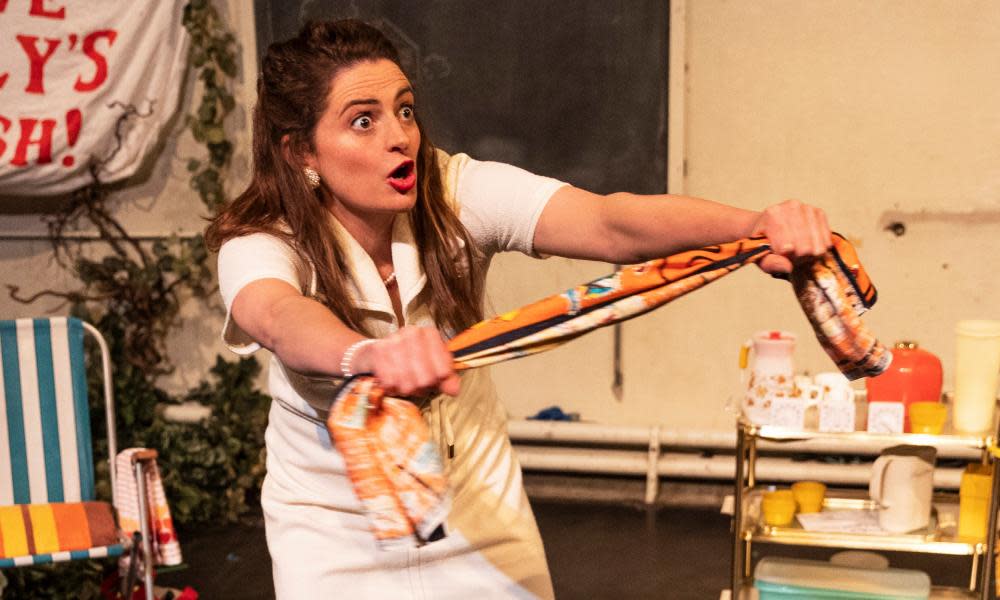The Bush review – one-woman show about collective green action

Towards the end of this one-woman show, writer/performer Alice Mary Cooper wonders out loud what the moral of her story is. She offers some possibilities but does not sound wholly convinced by any of them. It is a shame she did not ask the same question at the start. Although she tells her story in a bright and engaging manner in Laila Noble’s likable production, it is never clear why she thought to tell it in the first place.
The true-life story could be about many things – among them sisterly solidarity, grassroots campaigning, radicalisation, corporate greed, government complicity, political compromise and the birth of environmentalism. All those themes are present, without ever seeming central to what Cooper has to say.
Her tale is about a group of women from the conservative suburbs of Sydney who launch a campaign in 1970 to save Kelly’s Bush, a local area of bushland. Their ringleader is Betty James, a journalist and conservationist who, as played by Cooper, is a formidable organiser with an imperious manner. James galvanises a dozen or so of her friends into getting the community on side before lobbying politicians, property developers and trades unions. Their work over the next decade not only saves their own local patch but also kicks off a nationwide green ban movement and inspires Petra Kelly to found the German Green party.
Related: How to Build a Wax Figure review – prepare for your heart to melt
Cooper makes much of the women’s political beliefs. They are so conservative in this “insular peninsula” that many would rather give up their campaign than accept the support of the leftwing Builders Labourers Federation. It is not certain whether the experience shifts their perspective, although one of their number, Margaret Finch, does go from timid new neighbour to vocal activist.
Yet somehow The Bush comes across as being less about the politics than the ephemera of 1970s suburban life. It’s about wobbly pavlovas, cheese-and-pineapple hedgehogs, jazzercise and man-made fabrics, rather than the exhilaration of collective action. The story remains in its time and place, moderately interesting but not taking on the universal weight it deserves.
At Summerhall, Edinburgh, until 28 August.

 Yahoo Movies
Yahoo Movies 
